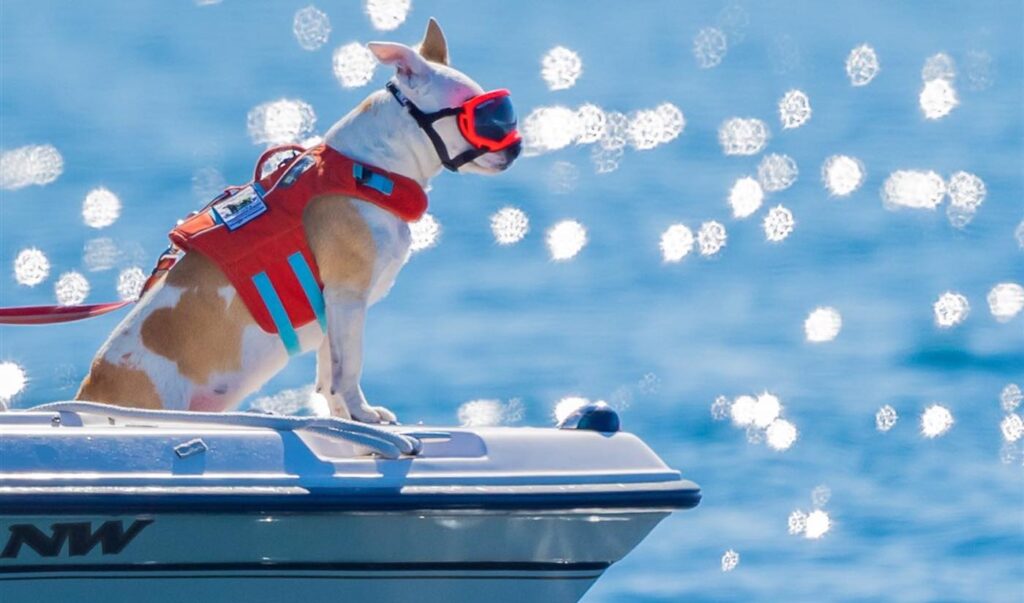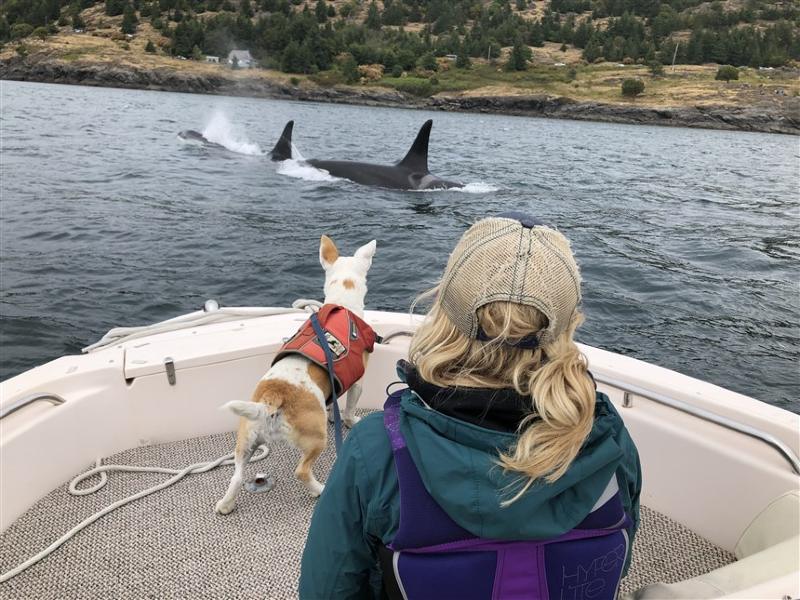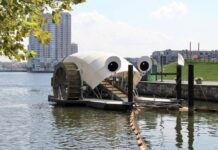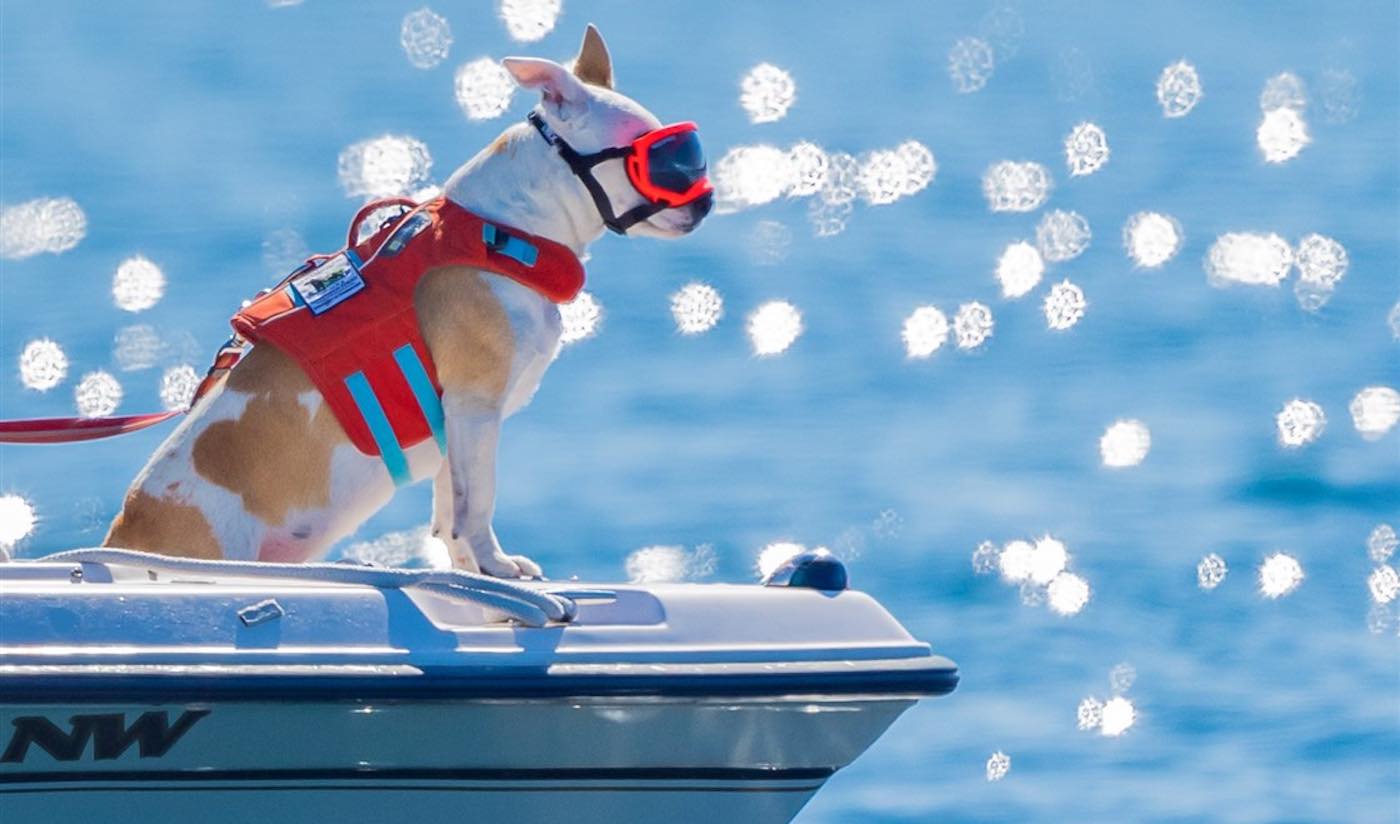A killer whale’s best friend might be this dog.

After being discarded as a young pup, a shelter dog named Eba is now using her unique talents to help save members of an iconic ocean species, the orca whale.
And, the one thing that scientists need to serve this species? Feces.
Eba’s nose for detecting whale poop (or “skat” as it’s commonly referred to in wildlife circles) turns out to be the perfect tool for a University research team.
The dog’s owner is Deborah Giles, a marine biologist at the University of Washington’s Center for Conservation Biology who studies killer whales. When Giles adopted the mixed-breed pup, it wasn’t with the intention to make her a working dog—but Eba soon began to exhibit certain traits that indicated she might have the skill set required to become a valued member of her research crew.
RELATED: ‘Woweee’ Says World’s First Nobel Prize-Winning Mascot as He Reacts to Big Win
Eba was soon enrolled in Conservation Canines, a program that trains dogs to hunt for marine wildlife droppings, which yield a wealth of information critical to research, including everything from genetics and general health to stress levels, and the presence of toxic chemicals in the whales’ diet. (Whale skat can also indicate pregnancy and just how far along an expecting whale momma’s gestation may be.)

CHECK OUT: Dogs Trained to Sniff Out COVID-19 Score Near-Perfect in Diagnosis of Human Sweat Samples
Giles conducts her studies in the Salish Sea off the Canadian Gulf Islands and Washington state’s San Juan Islands. The pod of Southern Resident killer whales currently numbers 74 members, including two juveniles. She says Eba’s dung-detecting debut exceeded expectations.
“By Eba’s second day on the water… she found her first wild whale scat by herself, which was amazing,” Giles said in an interview with TODAY.
As critical as their research is, the marine biologists do their utmost to ensure the pod isn’t stressed out by their presence. That means keeping a respectful distance—which is why Eba is proving invaluable.
“Her body gets stiff at first, like, ‘Oh, I smell it,’ then she starts sniffing up in the air,” Giles told The Seattle Times. “As soon as we pass through it, she’ll run along the side of the boat, and that’s what tells me where we need to turn into the wind and drive toward the sample.”
MORE: Blind Teen Swims For Gold With a Guide Dog Helping Her Prepare for Tokyo Paralympic Games
While it’s doubtful that Eba truly understands the importance of her contributions to help save the whales, it’s clear she truly loves her job.
“She’s really the perfect dog for this work,” Giles said. “She’s helping answer questions that will go to recovering an endangered species of beloved animals.”
HELP Your Pals Sniff Out the Good News – Share This Story on Social Media…




















